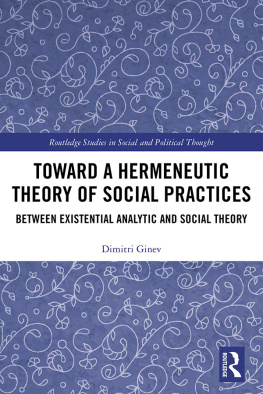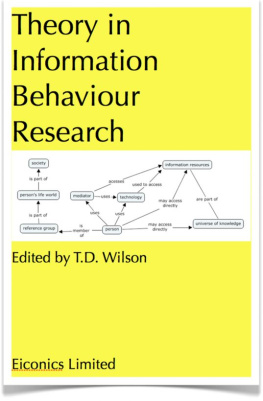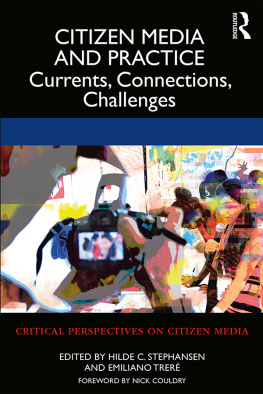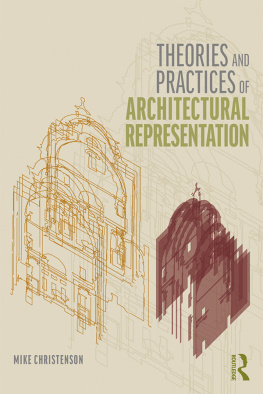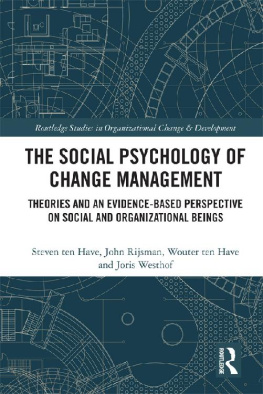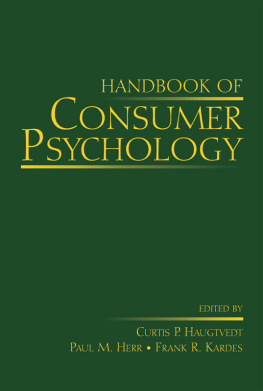Tony Wilson [Tony Wilson] - Consumption, Psychology and Practice Theories
Here you can read online Tony Wilson [Tony Wilson] - Consumption, Psychology and Practice Theories full text of the book (entire story) in english for free. Download pdf and epub, get meaning, cover and reviews about this ebook. year: 2018, publisher: Routledge, genre: Romance novel. Description of the work, (preface) as well as reviews are available. Best literature library LitArk.com created for fans of good reading and offers a wide selection of genres:
Romance novel
Science fiction
Adventure
Detective
Science
History
Home and family
Prose
Art
Politics
Computer
Non-fiction
Religion
Business
Children
Humor
Choose a favorite category and find really read worthwhile books. Enjoy immersion in the world of imagination, feel the emotions of the characters or learn something new for yourself, make an fascinating discovery.
- Book:Consumption, Psychology and Practice Theories
- Author:
- Publisher:Routledge
- Genre:
- Year:2018
- Rating:5 / 5
- Favourites:Add to favourites
- Your mark:
Consumption, Psychology and Practice Theories: summary, description and annotation
We offer to read an annotation, description, summary or preface (depends on what the author of the book "Consumption, Psychology and Practice Theories" wrote himself). If you haven't found the necessary information about the book — write in the comments, we will try to find it.
Practice theories of our equipped and situated tacit construction of participatory narrative meaning are evident in multiple disciplines from architectural to communication study, consumer, marketing and media research, organisational, psychological and social insight. Their hermeneutic focus is on customarily little reflected upon, recurrent but required, practices of embodied, habituated knowing howfrom choosing flaw-free fruit in a market to celebrating Chinese New Year Reunion Dining, caring for patients to social media voice. In ready-to-hand practices, we attend to the purpose and not to the process, to the goal rather than its generating. Yet familiar practices both presume and put in place fundamental understanding. Listening to Asian and Western consumers reflectingnot only subsequent to but also within practicesthis book considers activity emplacing core perceptions from a liminal moment in a massive mall to health psychology research. Institutions configure practices-in-practices cohering or conflicting within their material horizons and space accessible to social analysis.
Practices theory construes routine as minimally self-monitored, nonetheless considering it as being embodied narrative. In research output, such generic storied activity is seen as (in)formed, shaped from a shifting hierarchy of horizons or perspectivesfrom habituated to reflectiverather than a single seamless unfolding. Taking a communication practices route disentangles and avoids conflating tacit and transformative construction of identities in qualitative research. Practices research crosses discipline. Ubiquitous media use by managers and visitors throughout a shopping mall responds to investigating not only with digital tracking expertise but also from an interpretive marketing viewpoint. Visiting a practice perspectives hermeneutic underwriting, spatio-temporal metaphorical concepts become available and appropriate to the analysis of communication as a process across disciplines. In repeated practices, horizons of understanding are solidified. Emphasising our understanding of a material environment as equipment, practices theory enables correlation of use and demographic variable in quantitative study extending interpretive behavioural and haptic qualitative research.
Consumption, Psychology and Practice Theories: A Hermeneutic Perspective addresses academics and researchers in communication studies, marketing, psychology and social theory, as well as university methodology courses, recognising philosophy guides a disciplines investigative insight.
Tony Wilson [Tony Wilson]: author's other books
Who wrote Consumption, Psychology and Practice Theories? Find out the surname, the name of the author of the book and a list of all author's works by series.

![Tony Wilson [Tony Wilson] Consumption, Psychology and Practice Theories](/uploads/posts/book/124059/thumbs/tony-wilson-tony-wilson-consumption-psychology.jpg)

